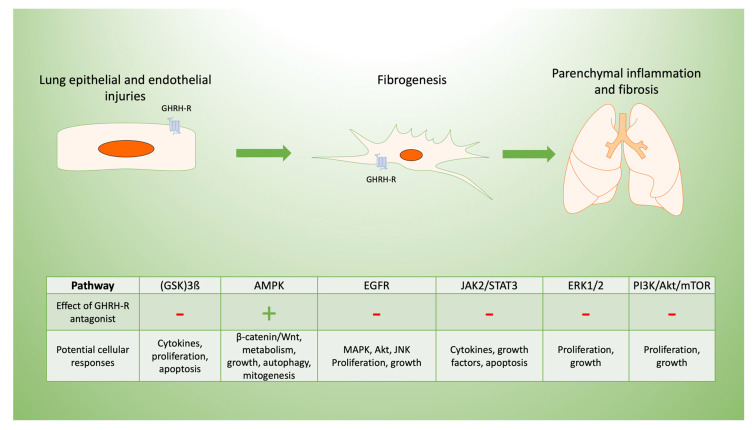Figure 2.
Potential mechanisms of GHRH-R antagonist in lung inflammation and fibrosis. Pulmonary fibrosis typically results from cellular injuries that may be followed by inflammation and progressive fibrosis. GHRH-R is present in lung tissue, and GHRH has effects on lung cellular functions potentially mediated by diverse signaling pathways. These are involved in the lung’s response to inflammation and resulting fibrosis, which may be in response to epithelial injuries as shown diagrammatically above. GHRH-antagonist peptides maintain endothelial barrier function disrupted by inflammation, as they downregulate extracellular signal related kinase (ERK1/2) and Janus kinase-signal transducer and activator of transcription (JAK2/STAT3). In lung epithelial cells, GHRH-R antagonist peptides activate adenosine monophosphate-activated protein kinase (AMPK) and glycogen synthase kinase 3 B (GSK3B) while inhibiting Akt/mammalian target of rapamycin (mTOR) and modulating cellular injury. Similarly, GHRH-R antagonist has anti-proliferative effects in several lung cancer cell lines, which are mediated by epidermal growth factor receptor (EGFR) pathways.

